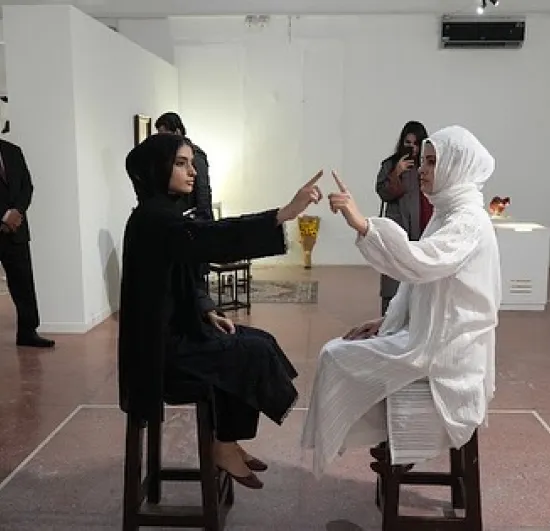After confirming your eligibility, you must choose a department from within MDSVAD. Regardless of your choice of department, all successful applicants are admitted to the Foundation Studies programme. The Foundation Studies programme provides each student the opportunity to investigate the possibilities offered by all degree programmes at SVAD. You must indicate the programme of your preference on the application form, which will be your major for the duration of your degree. In special cases, you may be able to apply for another programme at the end of the Foundation Year. The faculty, who are not obligated to entertain a change of department application, on rare occasions may approve requests at their discretion.
Application Form
You can find the online application form at BNU's online portal:
www.bnu.edu.pk www.bnu.edu.pk
You must complete the application form online, following all the instructions. Once you submit it, you will receive a confirmation. You must then submit all required documents (mentioned in the application form) to the Admissions Office on campus. When the Office receives your documents, they will hand over instructions for the Entrance Test to you.
Entrance Test
The admission test for the School of Visual Arts and Design is an online, open-book test that can be completed from home. Students will be given 24 hours to complete all the tasks. Candidates will be tested for reading comprehension, visual comprehension, general knowledge, research etc. Further details about the test will be provided to you upon application submission.
Interview
After the Test, you will be interviewed by a panel of SVAD faculty members. The interviews will be conducted online on Zoom, for which candidates are encouraged to be familiar with.
At SVAD, we look for motivated, observant, curious individuals, with visual intelligence and an interest in reading. The Entrance Test and interview act as a catalyst for us to assess your strengths and aptitude. We will evaluate your potential for development in the programmes that SVAD offers, as well as your research into your desired area of study. The interview is also your chance to ask us questions about SVAD. A portfolio is encouraged, and will help us recognize your passion and commitment.




